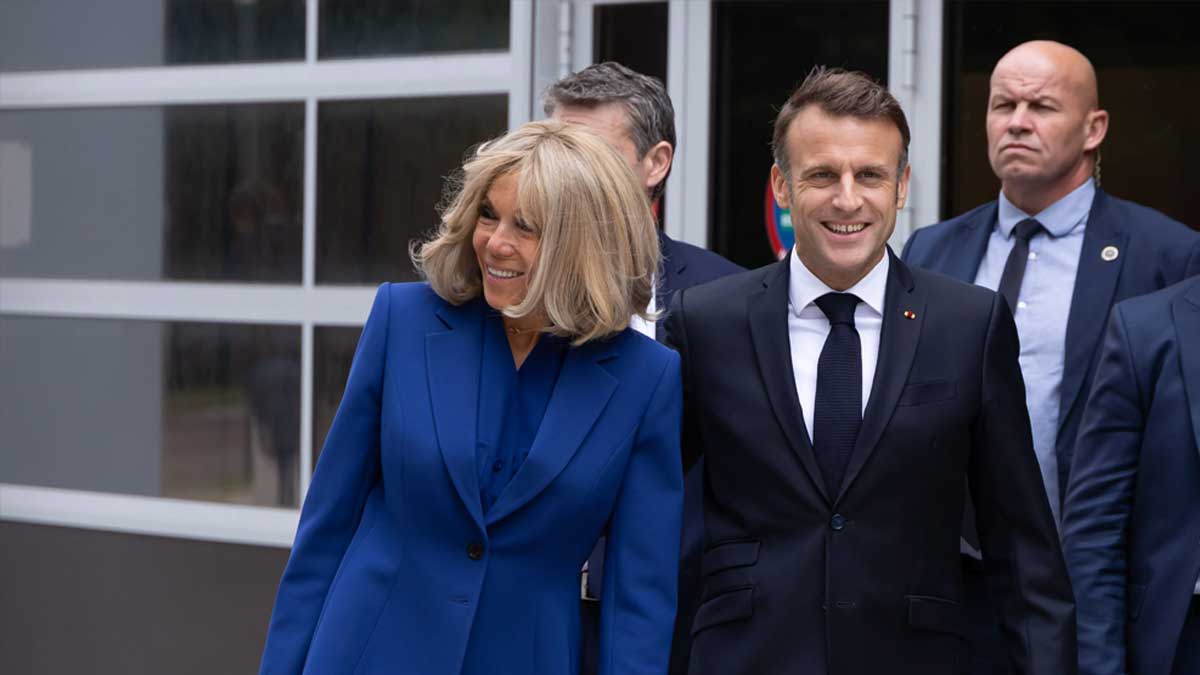- Home
- Billionaires
- Investing Newsletters
- 193CC 1000
- Article Layout 2
- Article Layout 3
- Article Layout 4
- Article Layout 5
- Article Layout 6
- Article Layout 7
- Article Layout 8
- Article Layout 9
- Article Layout 10
- Article Layout 11
- Article Layout 12
- Article Layout 13
- Article Layout 14
- Article Sidebar
- Post Format
- pages
- Archive Layouts
- Post Gallery
- Post Video Background
- Post Review
- Sponsored Post
- Leadership
- Business
- Money
- Small Business
- Innovation
- Shop
Recent Posts
France Vote: Leftists Ahead as Far-Right Falls Behind

In a surprising turn of events, leftist parties in France are projected to emerge as the biggest winners in the final phase of the parliamentary elections. This comes after a recent surge in support for the far-right prompted a concerted effort by opposing parties to prevent the National Rally from securing an absolute majority. The unexpected outcome has been characterized by political analysts as a significant shift in the French political landscape, reflecting deep-rooted discontent with the traditional parties and their policies.
The new Popular Front coalition, which includes socialist and communist parties, is expected to secure between 170 and 215 seats in the National Assembly, Bloomberg reported Sunday. This potential outcome would position the leftist coalition as the dominant force in the Assembly. The coalition’s strategy has been to present a united front against both the far-right and the centrist factions, capitalizing on the disillusionment with President Macron’s policies and the economic challenges facing the country. Meanwhile, the centrist Together for the Republic coalition, which includes President Emmanuel Macron’s Renaissance Party, is projected to win between 150 and 182 seats. Macron’s coalition has struggled to maintain its previous momentum, facing criticism over its handling of various domestic and international issues.
The National Rally, a far-right nationalist party with historical ties to racism, antisemitism, and Russia, is expected to finish third, with an estimated 110 to 158 seats. This marks a significant shift from the first day of voting, when the party appeared poised to win the most seats. Following the National Rally’s success in the June 30 elections, opposing parties united to block their advance, even withdrawing candidates in some constituencies to avoid splitting the anti-far-right vote. This tactical maneuver was seen as a necessary step to prevent the far-right from gaining an unprecedented level of influence in the Assembly, which would have significant implications for France’s domestic and foreign policies.
Voter turnout reached nearly 60% by mid-day Sunday, according to the Interior Ministry, marking the highest participation in a French election in decades, significantly higher than the 38% turnout in the 2022 legislative election. This surge in voter participation indicates a heightened level of political engagement and concern among the French electorate, driven by the high stakes of the election. Early projections indicate no party will secure a majority in the National Assembly, leading to a hung parliament. This outcome may force Macron to seek coalition negotiations with other groups or appoint a technocratic government. The prospect of a hung parliament adds a layer of complexity to the post-election landscape, as it would require extensive negotiations and compromises to form a functioning government.
As of Sunday afternoon, it remains unclear who will be the next Prime Minister of France. If the National Rally had won a parliamentary majority, Macron might have had to appoint 28-year-old party leader Jordan Bardella as prime minister, resulting in a split-party government known as “cohabitation.” However, Bardella had expressed disinterest in the role if his party did not secure an absolute majority. Without a majority, Macron’s choice for prime minister will need to reflect the composition of the new Assembly. The selection process is likely to be contentious, with various factions vying for influence and representation in the new government.
The elections conclude at 8 p.m. local time (2 p.m. EST), with initial polling projections expected soon after. Official results will likely be available late Sunday and early Monday. The outcome of the elections is anticipated with great interest, as it will determine the political direction of France for the coming years. Kylian Mbappé, captain of France’s national soccer team, urged voters to reject politically extreme candidates, calling the first round of voting results “catastrophic.” Mbappé’s intervention highlights the broader cultural and social dimensions of the election, with prominent figures from various sectors weighing in on the political discourse.
The snap election was called by Macron after his party’s defeat in the June 9 European election to the National Rally. Macron aimed to form a new coalition of those “who do not recognize themselves in the extremist fever,” hoping to restore power to the center. However, the election appears to have shifted power towards both the National Rally and the far-left. Despite the outcome, Macron has stated he will not step down as president before his term ends in 2027, which could result in governmental gridlock due to the power split. Macron’s popularity and that of his party have been declining for years, and their failure to secure an absolute majority in the 2022 National Assembly elections has hindered his ability to govern, similar to when the U.S. Congress and the White House are controlled by different parties. The political fragmentation in France mirrors broader trends in Western democracies, where traditional party systems are being challenged by rising populist and extremist movements.
Recent Posts
Categories
- 193cc Digital Assets2
- 5G1
- Aerospace & Defense46
- AI37
- Arts3
- Banking & Insurance11
- Big Data3
- Billionaires449
- Boats & Planes1
- Business328
- Careers13
- Cars & Bikes76
- CEO Network1
- CFO Network17
- CHRO Network1
- CIO Network1
- Cloud10
- CMO Network18
- Commercial Real Estate7
- Consultant1
- Consumer Tech180
- CxO1
- Cybersecurity68
- Dining1
- Diversity, Equity & Inclusion4
- Education7
- Energy8
- Enterprise Tech29
- Events11
- Fintech1
- Food & Drink2
- Franchises1
- Freelance1
- Future Of Work2
- Games141
- GIG1
- Healthcare78
- Hollywood & Entertainment186
- Houses1
- Innovation42
- Investing2
- Investing Newsletters4
- Leadership65
- Lifestyle11
- Manufacturing1
- Markets20
- Media193
- Mobile phone1
- Money13
- Personal Finance2
- Policy567
- Real Estate1
- Research6
- Retail1
- Retirement1
- Small Business1
- SportsMoney33
- Style & Beauty1
- Success Income1
- Taxes2
- Travel10
- Uncategorized8
- Vices1
- Watches & Jewelry2
- world's billionaires418
Related Articles
Trump Moves $4B Stake in Truth Social Parent, Stock Drops 6%
Donald Trump recently transferred his 57% stake in Trump Media & Technology...
By 193cc Agency CouncilDecember 20, 2024House Rejects Trump-Backed Funding Bill, Shutdown Looms
The U.S. House of Representatives rejected a new government funding bill on...
By 193cc Agency CouncilDecember 20, 2024Trump Named Time’s Person of the Year for Second Time
On Thursday, Time magazine honored Donald Trump as its “Person of the...
By 193cc Agency CouncilDecember 12, 2024Meta Donates $1 Million to Trump’s Inaugural Fund
Meta, the parent company of Facebook and Instagram, has confirmed a $1...
By 193cc Agency CouncilDecember 12, 2024















Leave a comment